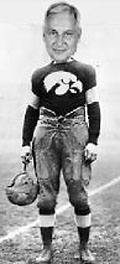Numbers, numbers, numbers—ya gotta love ’em. Yes, the Seattle Ethics and Elections Commission has issued its year-end report on the 1999 City Council elections, and we’re here to bring you the highlights.
Among the serious candidates (i.e., candidates who are not Lenora Jones), relatively unthreatened incumbent Margaret Pageler drew the highest average donation, at $149.23, and Charlie Chong the lowest, at $70.66. If you just include the finalists, the big-spenders race this year was the Chong/Heidi Wills dustup. Including independent expenditures (and we can if we want to), Heidi netted $193,907, not quite doubling Charlie’s total of $100,174.
Bureaucrats evidently care deeply about their future colleagues—the three top groups of contributors were employees of the city of Seattle, state of Washington, and King County. The fourth largest group of contributors—big surprise—worked for the Microsoft Corporation.
For an amusing postscript to any election, try checking finance reports for those generous latecomers who didn’t bother to write a check when the candidates needed it, but roll in to help the winners retire their campaign debts.
The reports of newly elected council member Jim Compton show donations from fellow electeds (Peter Steinbrueck and Mayor Paul Schell each chipped in $50, Margaret Pageler went for the full $400), future employees (Parks Superintendent Ken Bounds dug up $50, Seattle Public Utilities Director Diana Gale one-upped him with a $100 donation), and wish-we’d-endorsed-you organizations (the Washington Conservation Voters found $150 in the treasury).
Among the establishment late givers were Bob Gogerty and David Marriott, two principals of downtown political consultants Gogerty Stark Marriott, who wrote $400 checks the day after the election. (Hey Stark, where’s your donation?) Among the other downtown types were Sellen Construction’s Rick Redman ($250), developer Maria Barrientos ($400), attorney Martin Durkan ($400), and filthy rich businessman Bruce McCaw ($400). Your receipts are in the mail.
Debate and switch
No doubt Seattle Millennium Project officials are a bit mystified by the recent opposition to the lighting of the Aurora Bridge. After all, the city’s proposed bridge-lighting project has gotten far more press coverage than it has received private donations—so far, only the Dr. Jose P. Rizal Bridge on Beacon Hill has gotten the spotlight treatment, and only about one-third of the $400,000 cost of the Aurora Bridge project has been raised.
However, as neighbors pointed out earlier this month at a Queen Anne Community Council meeting, planners haven’t held the usual round of public meetings the city trots out for any project, much less one of this scale and significance. Another major gripe is that as the project has changed, city officials have unwisely assumed everyone has been following along in the newspapers. For example, the city originally investigated mounting the lights on the bridge itself, but rejected the idea as too costly. Yet some neighbors hadn’t heard about the change and were outraged to discover that the city plans to erect huge poles at each corner of the bridge—each topped with 32 floodlights. Residents of the houseboat docks near the bridge’s footings aren’t thrilled with the 75-foot concrete poles, partially because they fear they could topple during an earthquake.
Others were annoyed to discover the new lights are more than twice as bright as those used in a November 1998 city demonstration. And, even though the city has always intended the lights to be permanent, many folks thought the lighted bridges would be a one-year millennium event.
Some just don’t like the idea of another garish, glare-producing light display. “I would like my night to be night,” notes neighbor Dena Avgeres.
Put me in, Coach
Hoping to cement his tough guy credentials, Mayor Paul Schell recently told a Seattle Times reporter that he was an “Iowa linebacker,” so therefore he can’t be “a wuss.”
Hizzoner does have the broad shoulders required for his current job, but a few Seattleites were skeptical that he really played football for the University of Iowa, a Big 10 conference powerhouse. (Schell received a BA from Iowa in 1960.) Well the doubters were half-right. Schell was a college letterman, but his football days took place during his freshman and sophomore years as a student at Wartburg College, a small four-year school in Waverly, Iowa. Still, that should give him enough macho credibility to kick sand in the face of those City Council wimps, right?
“I play one mean game of ping-pong,” offers council member Nick Licata.
Dwight steps out
Maybe you’ve never heard of Dwight Dively, the city’s chief financial officer, but he doesn’t have that same problem in City Hall. The former City Council central staff star was stolen away by former Mayor Norm Rice several years back, and city officials know he carries the answers to all financial questions in his steel-trap mind.
Dively made a rare public appearance recently, substituting for Deputy Mayor Tom Byers at a League of Women Voters issues forum. “It was felt that Dwight had a little bit more expertise to offer,” explained Seattle LWV co-president Sandy Barney, in an introduction obviously not penned by onetime speechwriter Byers.
In his presentation on the effects of Initiative 695, Dively noted that any state bailout of local governments and transit agencies could only be a temporary one, with the real effects hitting next year. He also said officials are looking to the courts to help define the exact effects of the poorly written initiative. Ever the diplomat, Dively called I-695’s requirement for votes on all tax increases “a fascinating experiment.” This probably isn’t what he calls it at those City Hall meetings.






